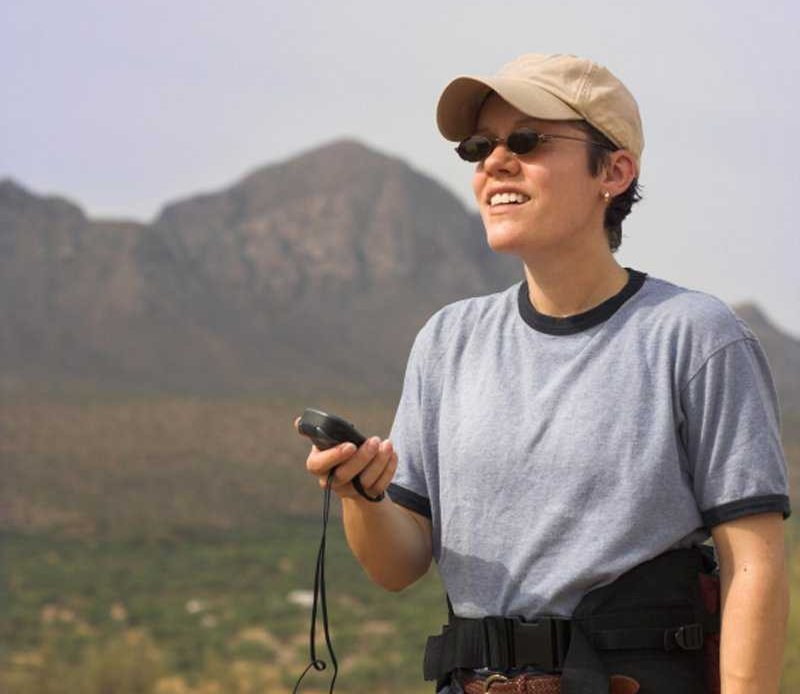(NewsUSA) - Americans may read thrillers and watch adventure movies, but their days aren't exactly fueled by pure adrenaline. They work, drive the kids to soccer practice, eat dinner, watch HBO -- but those with a handheld GPS can satisfy their thirst for adventure through modern day treasure hunts, or geocaching.
Geocaching is a global treasure-hunting game. Someone hides an item, uses a GPS to determine its coordinates, and then posts the information online. Geocache-seekers then use their own GPS units to track down the geocache, usually a box or a small item and a logbook.
The game sounds deceptively simple. While geocachers know the items' coordinates, reaching them might require a workout -- some locations require hiking and climbing, for example. Also, GPS units only take geocachers within 10 to 15 feet of the geocache, which is hidden to avoid accidental discovery by "Muggles" -; those uninitiated in the ways of geocaching.
Geocaching.com, the largest Web site for geocachers to announce new geocaches and log their successes, lists over 1,000,000 geocaches in over 200 countries.
The game has become so popular that GPS manufacturers are starting to design handheld GPS units specifically for geocaching. For example, the Magellan eXplorist GC (www.magellangps.com) includes a seamless connection to geocaching.com, a sunlight-readable color screen and a simple user interface to make geocaching a breeze. The unit is waterproof and comes pre-loaded with the coordinates of the most popular geocaches in the world. The GPS chipset promises 3-meter accuracy.
Of course, the eXplorist GC also comes with standard outdoor features, including waypoint creation, a worldwide basemap, active tracking and a trip odometer.
When geocachers find a geocache, they write their name in the logbook or exchange one of the items in the cache for one of equal value. Then they put the cache back in its original location, so other treasure-seekers can enjoy the thrill of the chase and, perhaps, discover a place previously unknown to them.
For more information about the eXplorist GC, visit www.magellangps.com/eXploristGC/.
Ref: Hiking - in Blogs
Geocaching is a global treasure-hunting game. Someone hides an item, uses a GPS to determine its coordinates, and then posts the information online. Geocache-seekers then use their own GPS units to track down the geocache, usually a box or a small item and a logbook.
The game sounds deceptively simple. While geocachers know the items' coordinates, reaching them might require a workout -- some locations require hiking and climbing, for example. Also, GPS units only take geocachers within 10 to 15 feet of the geocache, which is hidden to avoid accidental discovery by "Muggles" -; those uninitiated in the ways of geocaching.
Geocaching.com, the largest Web site for geocachers to announce new geocaches and log their successes, lists over 1,000,000 geocaches in over 200 countries.
The game has become so popular that GPS manufacturers are starting to design handheld GPS units specifically for geocaching. For example, the Magellan eXplorist GC (www.magellangps.com) includes a seamless connection to geocaching.com, a sunlight-readable color screen and a simple user interface to make geocaching a breeze. The unit is waterproof and comes pre-loaded with the coordinates of the most popular geocaches in the world. The GPS chipset promises 3-meter accuracy.
Of course, the eXplorist GC also comes with standard outdoor features, including waypoint creation, a worldwide basemap, active tracking and a trip odometer.
When geocachers find a geocache, they write their name in the logbook or exchange one of the items in the cache for one of equal value. Then they put the cache back in its original location, so other treasure-seekers can enjoy the thrill of the chase and, perhaps, discover a place previously unknown to them.
For more information about the eXplorist GC, visit www.magellangps.com/eXploristGC/.
Ref: Hiking - in Blogs
(NewsUSA) - Americans may read thrillers and watch adventure movies, but their days aren't exactly fueled by pure adrenaline. They work, drive the kids to soccer practice, eat dinner, watch HBO -- but those with a handheld GPS can satisfy their thirst for adventure through modern day treasure hunts, or geocaching.<br />
<br />
Geocaching is a global treasure-hunting game. Someone hides an item, uses a GPS to determine its coordinates, and then posts the information online. Geocache-seekers then use their own GPS units to track down the geocache, usually a box or a small item and a logbook.<br />
<br />
The game sounds deceptively simple. While geocachers know the items' coordinates, reaching them might require a workout -- some locations require hiking and climbing, for example. Also, GPS units only take geocachers within 10 to 15 feet of the geocache, which is hidden to avoid accidental discovery by "Muggles" -; those uninitiated in the ways of geocaching.<br />
<br />
Geocaching.com, the largest Web site for geocachers to announce new geocaches and log their successes, lists over 1,000,000 geocaches in over 200 countries.<br />
<br />
The game has become so popular that GPS manufacturers are starting to design handheld GPS units specifically for geocaching. For example, the Magellan eXplorist GC (www.magellangps.com) includes a seamless connection to geocaching.com, a sunlight-readable color screen and a simple user interface to make geocaching a breeze. The unit is waterproof and comes pre-loaded with the coordinates of the most popular geocaches in the world. The GPS chipset promises 3-meter accuracy.<br />
<br />
Of course, the eXplorist GC also comes with standard outdoor features, including waypoint creation, a worldwide basemap, active tracking and a trip odometer.<br />
<br />
When geocachers find a geocache, they write their name in the logbook or exchange one of the items in the cache for one of equal value. Then they put the cache back in its original location, so other treasure-seekers can enjoy the thrill of the chase and, perhaps, discover a place previously unknown to them.<br />
<br />
For more information about the eXplorist GC, visit www.magellangps.com/eXploristGC/.<br />
<br />
Ref: Hiking - in Blogs
0 31 0






